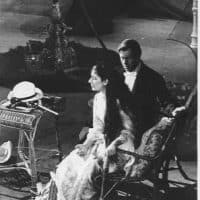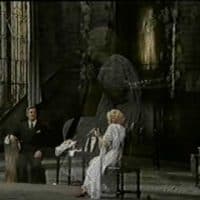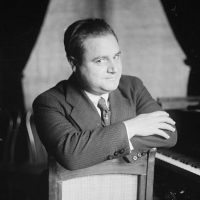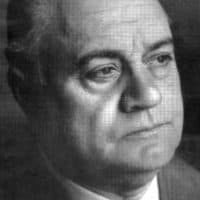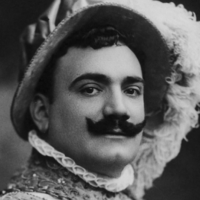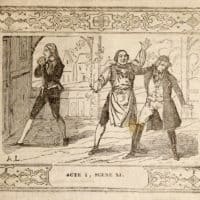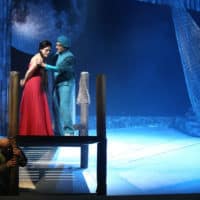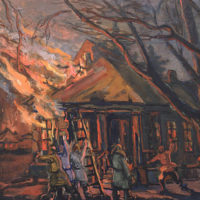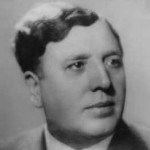 Pertile’s debut was in Flotow’s Martha (1911) after which he obtained an audition with Tullio Serafin. In two years he performed at the Teatro Dal Verme in Milan and Teatro Vittorio Emanuele in Turin. Between 1913 and 1921 his career went on from success to success rewarding a technical and stylistic progress which enriched his natural gift for theatrical awareness and dramatic psychology.
Pertile’s debut was in Flotow’s Martha (1911) after which he obtained an audition with Tullio Serafin. In two years he performed at the Teatro Dal Verme in Milan and Teatro Vittorio Emanuele in Turin. Between 1913 and 1921 his career went on from success to success rewarding a technical and stylistic progress which enriched his natural gift for theatrical awareness and dramatic psychology.
In 1917, Puccini invited him to create the role of Ruggero in Rondine at Bologna while his overseas engagements included South America and Spain. At the Met, New York, he was not really taken at heart by the public. In 1922 his debut at La Scala, Milan, in the role of Dimitri (Boris), caught Toscanini’s attention and became his favourite tenor for the ensuing 21 years. Nonetheless, Toscanini chose Lauri-Volpi at the expense of Pertile to sing Manrico, the Duke of Mantua and Cavaradossi onstage during the 1929 tour of Germany.
Pertile has been the most prestigious tenor after Caruso. He had a good but not a beautiful voice, right emission, sensitivity, extraordinary technique and vocal extension. He put together a highly varied repertoire of tenor roles from operas by Rossini, Donizetti, Verdi, Puccini, Wagner, the Russians and French: 67 roles in all. In Manon Lescaut he touched the heart of Puccini who called him “my greatest Des Grieux”. Pertile thus came to symbolize a La Scala in opposition to the Italianesque Metropolitan Opera of New York.
Unlike his contemporaries, Pertile had no extensive collaboration with the Met in New York, neither with any other major opera company outside Italy. His popularity within Italy, however, made him the chosen tenor for creating Nerone for Boito at La Scala (1 May 1923) and Sly for Wolf-Ferrari also at La Scala (29 December 1927). Here he was often praised for his musical intelligence and his skilfull use of a huge, metallic but not considerably beautiful voice. His impressive stamina and vocal reserve allowed him to excel in roles such as Lohengrin, Andrea Chénier and Otello. In 1946, he sang onstage for the last time in the opera Nerone by Boito.
After having dedicated the last years of his life to teaching, he died in Milan on 11 January 1952.
